
Do you have what you need to make your garden grow?


Garden Center
Store Hours
Mon-Sat:
6:00am - 10:00pm
Sun:
8:00am - 8:00pm
Curbside:
09:00am - 6:00pm
Location
Popular at Your Garden Center
Summer Popular Garden Supplies and More
Explore June Live Plants
Garden Project Calculators
;Resize=(703,395.44))
Grass Seed Calculator
When you're ready to seed your lawn, our calculator helps you estimate the amount of grass seed you'll need to get the job done.
;Resize=(703,395.44))
Mulch Calculator
Enter your preferred material, the square footage and mulch depth of the coverage space for accurate results.
;Resize=(703,395.44))
Fencing Calculator
We'll calculate the amount of fencing you should purchase based on your property needs.
Shop Outdoor and Garden Brands
Frequently Asked Questions About Gardening
What number planting zone am I in?
Check the USDA plant hardiness zone map, as planting zones have changed slightly over the years. Zones with higher numbers can plant earlier in the year. Choose plants that are meant for your zone and increase your odds of gardening success.
What does direct sow mean?
If the soil isn't frozen or cold, consider planting your flower, fruit, or veggie seeds directly into your garden. This is called the "direct sow" method. Plant after the threat of frost is gone for the season, as sprouts and seedlings can't weather those conditions. You can also start your seeds indoors if you'd like. Consult your seed package for when and how to sow seeds.
How do I plant flower seeds?
The best source of information is the seed packet your garden-to-be came in. It's key to successfully growing spring flowers, fruits, and vegetables — indoors or outdoors. Requirements vary from one type of fruit, flower, or veggie plant to the next. Some seeds should only be sown indoors, and your seed envelope will tell you that, too. You'll be a pro at planting seeds in no time.
Should I harden off my seedlings before planting them outside?
Yes, if you raised plants indoors from seeds in your own plant nursery, harden them first before you transplant them. Hardening allows your seedlings to adjust to outdoor life and the fluctuating spring weather, making them more resilient against cold snaps. It slows their growth until they're strong and ready to take off during a spring warm front.
What should I check before planting transplants or seeds outside?
Before you plant, make sure that the soil is healthy, your plant will have the right amount of sun, and it's warm enough outside. Check your seed package to see if it likes partial sun, full sun, or shade, as well as what time of year it should be planted. Space your plants as described on the seed packet for best results so your plant babies have room to flourish.
What are seed tapes?
If you want more guidance in planting or are dealing with extremely tiny seeds, consider seed tapes. They're biodegradable pieces of paper with tiny seeds affixed at regular intervals. Just bury the tape and water as directed. If all goes well, your perfectly spaced sprouts will pop up soon.
Garden Project Ideas
The Home Depot Garden Center at Massillon
Celebrate Springtime Gardening
On beautiful spring days, tidy the yard before everything blooms in earnest. Many people feel inspired to refresh their outdoor space for entertaining as well. Don't forget to sweep the gazebo and clean out the shed in preparation for spring, too. No matter which plants you need and what outdoor projects you choose to tackle, search for your local plant nursery and find that The Home Depot Garden Center in Massillon can help you enjoy your spring activities to the fullest.
Plant Hardiness Zones Explained
The first thing to know when planting spring flowers, vegetables, and other seeds is your planting zone. Every location in the U.S. and its territories is sorted by climate. Find your zone on the USDA growing zone map and learn when to plant seeds.
For example, you could transplant bell peppers outdoors in mid-March in Zone 10, but not until the end of May in Zone 4. You'll have good results with plants that have your zone number or less. In other words, a Zone 8 garden can support plants listed as Zones 1–8. The timeframe to direct sow outdoors in your garden is often around a month later than the indoor start date. Be sure to read your seed packet for details. If you start seeds later than recommended, it's not ideal, but it should even out as time passes.
Gardening in Your Growing Zone
The Midwest is mostly Zones 6 and 7 throughout Indiana, Michigan, and Kentucky. You’ll find pockets of Zone 5 and stretches of Zone 4 in the Upper Peninsula. In Zones 5 and 6, the outdoor growing season doesn’t begin here until mid-March or even April, although you can plant some veggie seeds halfway through February. Warmer Zone 7 can start planting earlier, and Zone 4 much later on. Tomatoes, peppers, cucumbers, squash, and other classic garden crops will thrive in this region, and most of them can get an early jump on growing indoors before spring really moves in.
Also, check out cruciferous veggies and certain herbs if you're ready to get planting. This includes broccoli, cabbage, and kale. Greens like spinach, artichokes, and fragrant herbs, including oregano, basil, and parsley, also don't mind an early start. The main concern is waiting until the frost has passed for the season, so planting seeds outdoors as direct sow is later here compared to farther south.
Start Seeds Indoors
Grow your garden from seeds by starting them indoors in your own plant nursery. We've got all the seed starter supplies you'll need. For best results, you'll want grow lights or a warming mat to go with your seed tray or plant pots. If you're planting a larger garden, use seed trays — like the ones you see sprouts in at your Massillon Garden Center — to stay organized and plant tiny soil plugs when the time comes. You can also use pots with seed starter mix and potting soil.
Measure your finger to use it as a ruler. In general, you'll plant 3–5 seeds, then press them into the soil to the depth you need with your finger. Mark where you planted the seeds with a plant tag or toothpick. Otherwise, it'll be a surprise when the sprouts push out of the soil.
Sprouts
Prepare your seed sprouts for outdoor life while they're still indoors. These inch-tall micro-seedlings are fragile but resilient. Seedlings don't get all this pampering in nature, so they can handle more than you think. However, don't go overboard, as your sprouts are still babies. You can even use an oscillating floor fan on low to mimic the wind and strengthen their stems.
Harden Your Seedlings
Remember to harden your seedlings for best results when they're grown. On days above 45 degrees, take your trays or pots of seedlings outside to slowly warm in the shade for a couple of hours, but bring them inside at night. Cloudy days are fine, but no harsh nighttime chills or direct sunlight yet. After a week or more of this, you can leave them out overnight if the temps stay warmer than 50 degrees. Cover your plants if they're in the ground when a late-season frost sneaks back in.
Transplant Young Plants Into Their New Homes
When your plants have three or four true leaves — different from miniature seedling leaves — it's time to transplant them. In quality soil, dig a hole the same size as the dirt plug where your transplant has been growing. If your ground soil isn't great, dig a slightly bigger hole and fill the extra room with nutrient-rich topsoil. Apply fertilizer as directed, either on top of the soil after it's planted or in the hole. Only apply as much as recommended, as you could burn the plant and kill it instead of helping it along.
Protect Your Garden With Mulch
Finish off your garden with mulch and compost. Compost enriches the soil so your garden can grow even better. It may help foster stronger plants that bear more flowers and fruit. Mulch controls weeds and keeps the soil moist. Compost and mulch can be DIY creations, but you can also purchase them in-store. The next time you're looking for "mulch near me," stop by the Garden Center to get the perfect amount.
Greet the Spring
Don't miss a minute of growing season. Prepare to fertilize your lawn, plan your garden and landscaping, and browse The Home Depot nursery to find inspiration on which spring flowers to plant when the weather warms. For those without lawns, consider adding artificial grass, a pellet grill, or an outdoor rug to your patio or balcony. Shop for the soil, seeds, and fertilizer you need in the aisles of your Massillon Garden Center, online, or on our mobile app. Let's get growing together.
Nearby Stores
Find Another Store
4873 Portage St
Canton, OH 44720
6.19 mi
Mon-Sat: 6:00am - 10:00pm
Sun: 8:00am - 8:00pm
2811 S Arlington Road
Akron, OH 44312
13.45 mi
Mon-Sat: 6:00am - 10:00pm
Sun: 8:00am - 8:00pm
1155 High Street
Wadsworth, OH 44281
21.52 mi
Mon-Sat: 6:00am - 10:00pm
Sun: 8:00am - 8:00pm
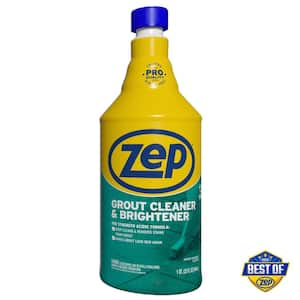
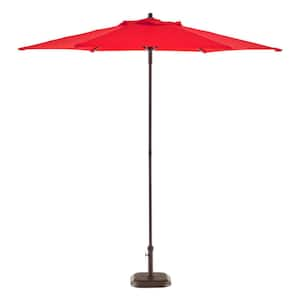
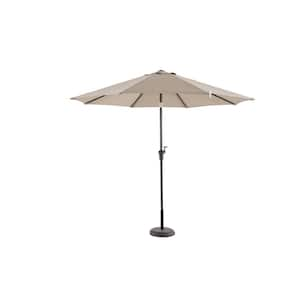
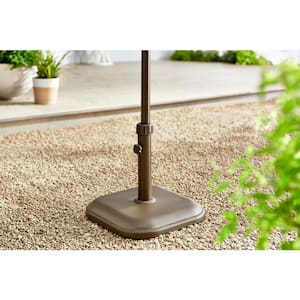
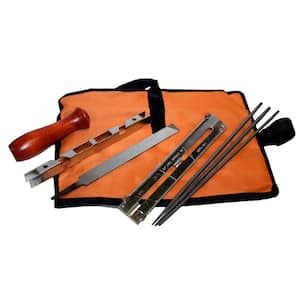
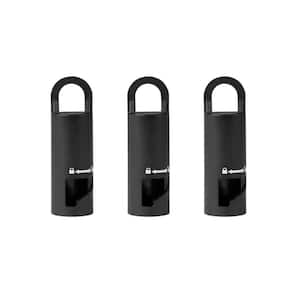
)
/17_514245_S_012_Product%20Image%20(square).jpg?im=Resize=(300,300))
)
)
)
;Resize=(300,300))
/2023_P2_Rain_Barrels_Product%20Image%20(square).jpg?im=Resize=(300,300))
)
)
)
)
;Resize=(300,300))
;Resize=(300,300))
;Resize=(300,300))
)
;Resize=(300,300))
;Resize=(300,300))
)
/12_SOIL_B_0420_Social%20media%20(square).jpg?im=Resize=(300,300))
;Resize=(300,300))
;Resize=(300,300))
;Resize=(300,300))
;Resize=(300,300))
)
;Resize=(300,300))
)
;Resize=(300,300))
;Resize=(300,300))
/18Patio_Camden_Seagrass_5pcSeating_Planters_302468736_DTL3_L_Social%20media%20(square).jpg?im=Resize=(300,300))
;Resize=(300,300))
;Resize=(300,300))
)
;Resize=(300,300))
;Resize=(300,300))
;Resize=(300,300))
;Resize=(300,300))
)
;Resize=(300,300))
)
)
.jpeg?im=Crop,rect=(363.69230769230774,1.2307692307692308,958.7692307692308,958.7692307692308);Resize=(300,300))
;Resize=(300,300))
;Resize=(300,300))
)
)
;Resize=(300,300))
)
)
;Resize=(300,300))
;Resize=(300,300))
)
;Resize=(300,300))
)
)
;Resize=(300,300))
;Resize=(300,300))
)
;Resize=(300,300))
/Capello_Spring_Mum_10in_Social%20media%20(square).jpg?im=Resize=(300,300))
;Resize=(300,300))
)
)
)
)
)
;Resize=(300,300))
)
)
;Resize=(300,300))
;Resize=(300,300))
;Resize=(300,300))
)
)
;Resize=(300,300))











































